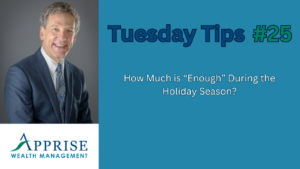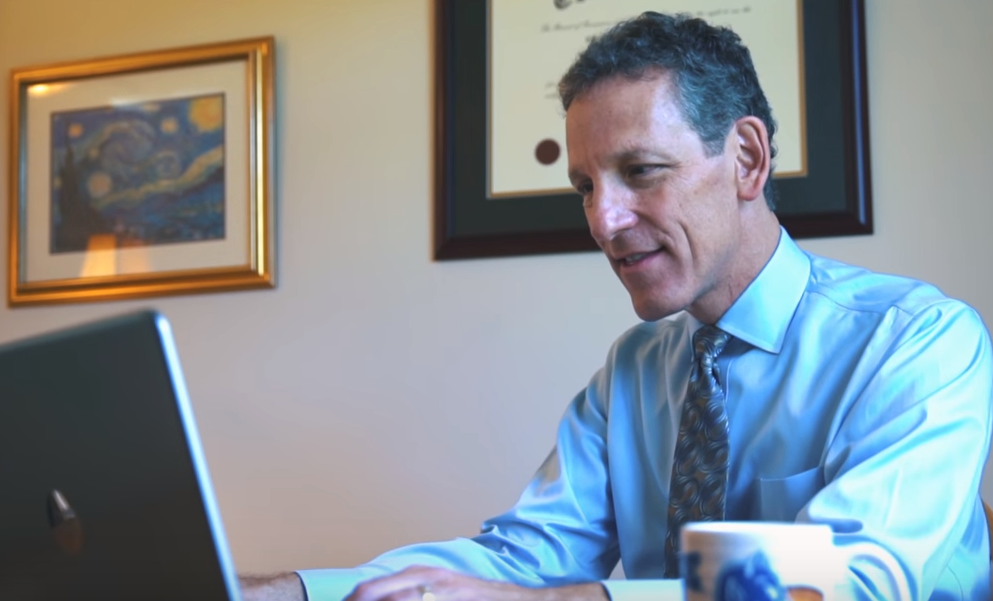I don’t make market forecasts. Why? The odds strongly favor that they will be wrong. We don’t have complete information because unpredictable – and unknowable – events happen, and they are going to affect the outcome.
When I was an analyst covering the energy sector, I received frequent calls from journalists and regularly appeared on CNBC and Bloomberg television. I was often asked for my oil price forecast. I gave an answer, but I prefaced it with the following: As part of my job, I’m supposed to forecast oil prices, so I’ll give you a number. But there’s one number I can almost assure you the price won’t be. That’s the number I’m about to give you. I forecast oil prices for 28 quarters. I hit it on the nose once. And that was just luck. Why? Who can forecast changes in supply and demand, the economy, geopolitical issues, and the decisions made by sovereign nations that largely depend on oil-related revenues to drive their economies?
The same basic principles apply to stock market forecasts. You can see the 2022 S&P 500 forecasts from large brokerages and banks here. Oppenheimer topped the list at 5330 (+12%). Morgan Stanley’s 4400 (-8%) was the least optimistic. The actual result: a 19.4% decline.
2022 Market Performance
In 2022, we also experienced a market rarity. Both stocks and bonds fell in the same year. According to research cited in this article, this was only the fourth time this happened. It was also the first time both stocks and bonds fell by 10% or worse in the same year.
As 2022 started, we didn’t envision the highest inflation we’ve had in 40 years. A war between Russia and Ukraine was not on our radar screens. After maintaining a zero-rate policy for several years, the Fed started aggressively raising interest rates, too. In June, they raised rates by 75 basis points – the largest increase since 1994. The Fed raised rates seven times in all in 2022. The year ended with the highest Federal Funds rate in 15 years. Plus, we had the still lingering effects of a pandemic. We ended up with a bear market in stocks and a historic selloff in bonds. Market darlings such as big technology companies had a rough year. Hot markets like cryptocurrency (see here for our thoughts) also reversed course.
On a more positive note, here are 22 things that made the world a better place in 2022.
Quotes Related to Market Forecasts From Successful Investors
The following quotes share what some of history’s greatest investors have said about market forecasting.
We’ve long felt that the only value of stock forecasters is to make fortune tellers look good. Even now, Charlie and I continue to believe that short-term market forecasts are poison and should be kept locked up in a safe place, away from children and also from grown-ups who behave in the market like children. – Warren Buffett
In all my 60 years in the stock market, I never found anyone whose opinion of what the stock market would do next week or next month was worth heeding. – John Templeton
Far more money has been lost by investors preparing for corrections – or trying to anticipate corrections – than has been lost in corrections themselves. – Peter Lynch
Historical Market Returns
In general, the market, as measured by the S&P 500 Index, goes up a little more than 70% of the time. That applies regardless of the market’s performance in the prior year. The average annual increase in the S&P 500 dating back to the 1920s is about 10%. You should note that this figure is before inflation. The market also rises – or falls – by 10% or more roughly two-thirds of the time.
I recognize that many of you like to read market forecasts. But we should take them as mere entertainment. It’s impossible to forecast the market’s path six months or a year into the future with any degree of accuracy and consistency. The most likely outcome is that this year’s stock market forecasts will prove to be wrong.
Instead of relying on market forecasts, I recommend that you stick to your investment process. (See the last section of this blog for a discussion about the importance of having an investment process.) You should also embrace uncertainty. Whether we like it or not, we need to invest without knowing what will happen to our money in the short term. That’s one reason you should have an emergency fund to pay your bills if something unforeseen happens. It can also help keep you from selling assets at a loss if the market works against you.
Focus on the Long Term
When it comes to investing, focus on the long term. The market tends to rise over long periods. Basing your investments on specific market predictions can harm your financial health because nobody knows what will happen. Once you start making bets based on market forecasts you are gambling, not investing.
While past performance does not guarantee future results, you can view the stock market’s future optimistically. Remember that if you’re adding money to your investments, a falling market can be your friend. It provides you with the opportunity to buy at a lower price than you paid in the past. If you own something like an S&P 500 Index fund, you will likely be rewarded by a decision to buy at today’s depressed prices.
Check this post for a discussion about some things that probably won’t happen in 2023.
Final Thoughts
Your financial plan is not dependent on us, or anyone else correctly predicting the future. Instead, we endeavor to prepare for a wide range of possibilities. This makes forecasting entirely unnecessary. The planning process should include setting realistic expectations, playing the probabilities, and making course corrections along the way.
Planning should not include making short-term predictions about the stock market’s direction or course.
As a result, it makes sense to ignore what the pundits have to say and focus on living and preparing to live your desired lifestyle both now and in the future.
I hope you find the above discussion helpful. If you have questions or would like some help determining what might be best for you, please schedule a free call. I’ll gladly answer any questions and assist in whatever way I can.
I hope everyone had a wonderful New Year’s celebration and that your 2023 gets off to a great start. I wish you all health, prosperity, time with loved ones, and the presence to appreciate all three in the New Year.
I’ll be back next week with “Apprise’s Five Favorite Reads of the Week.”
Our practice continues to benefit from referrals from our clients and friends. Thank you for your trust and confidence.
We hope you find the above post valuable. If you would like to talk to us about financial topics including your investments, creating a financial plan, saving for college, or saving for retirement, please complete our contact form. We will be in touch. You can also schedule a call or a virtual meeting via Zoom.
Follow us: Twitter Facebook LinkedIn
Please note. We post information about articles we think can help you make better money-related decisions on LinkedIn, Facebook, and Twitter.
For firm disclosures, see here: https://apprisewealth.com/disclosures/
Phil Weiss founded Apprise Wealth Management. He started his financial services career in 1987 working as a tax professional for Deloitte & Touche. For the past 25+ years, he has worked extensively in the areas of financial planning and investment management. Phil is both a CFA charterholder and a CPA.
Located just north of Baltimore, Apprise works with clients face-to-face locally and can also work virtually regardless of location.






